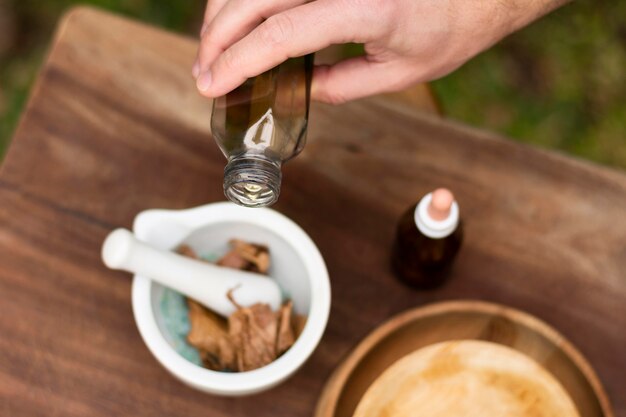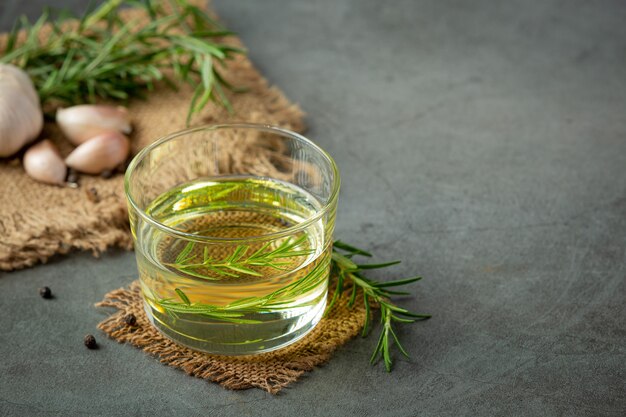Ask Ayurvedic doctor a question and get a consultation online on the problem of your concern in a free or paid mode. More than 2,000 experienced doctors work and wait for your questions on our site and help users to solve their health problems every day.
Jeerakadyarishta Benefits: A Comprehensive Ayurvedic Guide

Introduction
Imagine a traditional herbal tonic that has been used for centuries to aid digestion, support postpartum recovery, and promote overall well-being. Welcome to the world of Jeerakadyarishta—an Ayurvedic formulation centered around jeera (cumin) and other potent herbs. Known for its warming, digestive, and carminative properties, this herbal elixir has increasingly drawn attention in modern healthcare.
In this article, we’ll explore Jeerakadyarishta benefits from a scientific perspective, highlight research findings, and provide practical insights for safe usage. We’ll also examine best practices, possible side effects, and frequently asked questions, giving you a complete, evidence-based overview. Keep reading to discover if this time-honored remedy is worth including in your wellness journey.
Don't wait or self medicate. Start chat with Doctor NOW
Table of Contents
- What Is Jeerakadyarishta?
- Key Ingredients and Their Properties
- How Jeerakadyarishta Works in Ayurveda
- Scientific Evidence on Jeerakadyarishta Benefits
- Potential Health Benefits
- 5.1 Digestive Support
- 5.2 Postpartum and Women’s Health
- 5.3 Metabolic and Weight Management
- 5.4 Immune System Support
- 5.5 Anti-Inflammatory Effects
- Dosage and Administration
- Precautions, Side Effects, and Warnings
- Frequently Asked Questions (FAQ)
- Conclusion
What Is Jeerakadyarishta?
Jeerakadyarishta, also spelled “Jeerakadyarishtam,” is an Ayurvedic herbal wine (arishta) usually prepared from cumin (jeera) seeds and a blend of other medicinal plants such as fennel, ginger, and select Ayurvedic spices. This formulation undergoes natural fermentation, which is believed to enhance the bioavailability of its therapeutic compounds. In classical Ayurveda, Jeerakadyarishta is described as a “deepana-pachana” (digestive stimulant) remedy, primarily recommended to improve digestion and nutrient absorption.
Historical Context
- Used for centuries in India, particularly for supporting postpartum health.
- Referenced in classical Ayurvedic texts, including “Bhaishajya Ratnavali,” highlighting its relevance for digestive and maternal care.
Modern Adoption
- Rising global interest in holistic and functional medicine has increased its popularity.
- Readily available in specialized Ayurvedic stores and online retailers worldwide.
Key Ingredients and Their Properties
Although formulas may vary slightly, common components of Jeerakadyarishta include:
-
Cumin (Cuminum cyminum)
- Widely recognized for its carminative (gas-reducing) and digestive properties.
- Exhibits antioxidant and anti-inflammatory activities (Journal of Food Science).
-
Ginger (Zingiber officinale)
- A warming spice known to ease nausea and provide anti-inflammatory support.
-
Fennel (Foeniculum vulgare)
- Typically used in traditional medicine for bloating, indigestion, and colic relief.
-
Guduchi (Tinospora cordifolia)
- Believed to bolster immune function and support liver health.
-
Other Herbs
- May include coriander, cardamom, long pepper (pippali), and others to boost digestive synergy and therapeutic scope.
Overall, the combination of these botanicals delivers a comprehensive phytochemical profile. Fermentation is thought to increase the potency and digestibility of the active constituents in these herbs.
How Jeerakadyarishta Works in Ayurveda
Ayurveda attributes many illnesses to disturbances in the digestive fire (agni) and imbalances among the three doshas (Vata, Pitta, Kapha). Jeerakadyarishta is frequently employed to:
- Enhance agni (digestive fire), thereby improving nutrient absorption.
- Balance Vata and Kapha, contributing to the relief of gas, bloating, and sluggish digestion.
- Support postpartum recovery by reestablishing equilibrium in the body after childbirth.
Dosages are often personalized according to individual constitution (prakriti), current health status, and specific concerns or conditions.
Scientific Evidence on Jeerakadyarishta Benefits
While centuries of anecdotal evidence exist, modern scientific research focusing on Jeerakadyarishta as a finished product is limited. However, multiple studies underline the bioactive components of its main ingredients:
- A 2019 review in the Journal of Ethnopharmacology affirmed cumin’s antimicrobial, antioxidant, and hypolipidemic properties.
- Ginger has been extensively researched for its anti-nausea and anti-inflammatory effects (PubMed ID: 22538118).
- Fennel seeds demonstrated anti-colic effects in infants and enhanced digestion in adults, according to a 2020 meta-analysis in Complementary Therapies in Clinical Practice.
These findings support many of the traditional claims about the herbs in Jeerakadyarishta. Larger, more comprehensive clinical trials would further clarify its full therapeutic potential.
Potential Health Benefits
5.1 Digestive Support
Among the most frequently cited Jeerakadyarishta benefits is its ability to promote healthy digestion. The herbal blend can:
- Stimulate the release of digestive enzymes, minimizing gas and bloating.
- Combat dyspepsia by enhancing the breakdown of food in the gut.
- Provide phenolic compounds that may help maintain balanced gut flora.
Tip for Use: Ayurvedic practitioners often suggest a dose of 15–20 mL after meals to support digestion. However, this recommendation should be validated by a healthcare professional for personalized guidance.
5.2 Postpartum and Women’s Health
Jeerakadyarishta is a mainstay in postpartum care in Ayurveda. It is believed to:
- Replenish nutrients depleted during childbirth.
- Promote lactation by supporting healthy digestion and nutrient distribution.
- Support uterine health and assist in rebalancing hormones.
A pilot study in the Indian Journal of Traditional Knowledge indicated that women using cumin-based formulations reported reduced postpartum discomfort and increased energy. Although promising, broader research with control groups and larger sample sizes will yield more definitive conclusions.
5.3 Metabolic and Weight Management
Cumin and ginger have been investigated for their positive effects on metabolic rate. Small-scale trials suggest:
- Cumin could help regulate lipid profiles, targeting triglycerides and LDL cholesterol.
- Ginger might enhance insulin sensitivity in people at risk of metabolic syndrome.
While Jeerakadyarishta alone is not a weight-loss solution, incorporating it into a healthy lifestyle may provide metabolic support and smoother digestion, indirectly aiding weight management.
5.4 Immune System Support
The antioxidant properties of cumin, ginger, and guduchi potentially:
- Protect cells from oxidative stress.
- Strengthen immune responses, crucial during seasonal shifts or recovery periods.
- Support gut health, which is tightly linked to overall immune function.
5.5 Anti-Inflammatory Effects
Research on cumin and ginger consistently shows anti-inflammatory activity, partly by reducing pro-inflammatory cytokines. When consumed under professional guidance, Jeerakadyarishta may help manage low-grade inflammation, potentially benefiting individuals with conditions tied to chronic inflammatory states.
Dosage and Administration
A commonly recommended dosage in Ayurvedic practice is:
- Adults: 15–20 mL, once or twice daily, typically after meals.
- Postpartum: Dosage can be higher, as directed by a healthcare practitioner.
- Children: Consultation with a pediatrician or Ayurvedic expert is vital, since formulations and dosages vary.
Always follow the advice of a qualified professional, as individual tolerance and health conditions can differ significantly.
Precautions, Side Effects, and Warnings
While generally well-tolerated, Jeerakadyarishta may not suit everyone. Keep the following in mind:
- Allergic Reactions: Avoid if you have known allergies to cumin, ginger, fennel, or related herbs.
- Digestive Sensitivity: Excessive intake can sometimes lead to gastric upset or diarrhea.
- Sugar Content: Arishtas contain sugars from the fermentation process. People with diabetes or those monitoring blood glucose should seek medical advice beforehand.
- Drug Interactions: Cumin, ginger, or fennel might interact with anticoagulant or diabetes medications, so always discuss with your doctor if you’re on prescription meds.
Frequently Asked Questions (FAQ)
1. Is Jeerakadyarishta safe for long-term use?
When taken under professional supervision, it’s considered relatively safe. However, long-term usage should be monitored by a healthcare provider to watch for any unexpected effects or interactions.
2. Can I take Jeerakadyarishta during pregnancy?
Due to its potent herbs and fermentation, it is typically not advised during pregnancy unless specifically prescribed by an Ayurvedic doctor or obstetrician. Always consult a medical professional for personalized guidance.
3. Does Jeerakadyarishta help in weight loss?
Jeerakadyarishta is not primarily a weight-loss remedy, although its digestive and metabolic benefits could complement a healthy diet and exercise routine. Results vary from person to person.
4. How quickly can I see results?
Digestive improvements may be noticeable within a few days, while postpartum benefits such as enhanced energy may take a few weeks. Consistency in usage and correct dosing play key roles.
5. Where can I buy authentic Jeerakadyarishta?
Seek out reputable Ayurvedic pharmacies or certified online vendors. Verify the manufacturer’s quality standards and consider consulting an Ayurvedic practitioner for brand recommendations.
6. Is there modern medical evidence supporting its usage?
Direct large-scale studies on Jeerakadyarishta as a complete product are limited. However, its individual ingredients (cumin, ginger, fennel) have been studied extensively, supporting many of its traditional claims. Future research may offer more comprehensive insights.
Conclusion
Jeerakadyarishta benefits extend across digestion, postpartum health, immune support, and more—rooted in centuries of traditional Ayurvedic wisdom. Although further clinical trials are needed, emerging scientific findings on cumin, ginger, and fennel support its time-honored reputation.
Before you incorporate Jeerakadyarishta into your routine, consult a licensed healthcare practitioner—especially if you’re pregnant, nursing, or taking medications. Personalized guidance is crucial to ensure safety and effectiveness.
If you found this article helpful, feel free to share it with others interested in Ayurvedic solutions and comment below with any questions or experiences. Consider subscribing to stay updated on new research, holistic health insights, and more Ayurvedic knowledge.
References and Further Reading
- Journal of Ethnopharmacology – Insights on Cumin’s Antimicrobial, Antioxidant, and Hypolipidemic Properties
- PubMed (PMID: 22538118) – Studies on Ginger’s Therapeutic Effects
- Indian Journal of Traditional Knowledge – Postpartum Cumin-Based Formulation Pilot Study
- Complementary Therapies in Clinical Practice (2020) – Meta-Analysis of Fennel’s Anti-Colic Efficacy
- World Health Organization (WHO) – Guidelines on Traditional Medicine Usage
Call to Action:
- Share this article with friends or family interested in holistic wellness.
- Comment your thoughts or questions.
- Subscribe for more evidence-based insights on Ayurvedic and integrative health.



